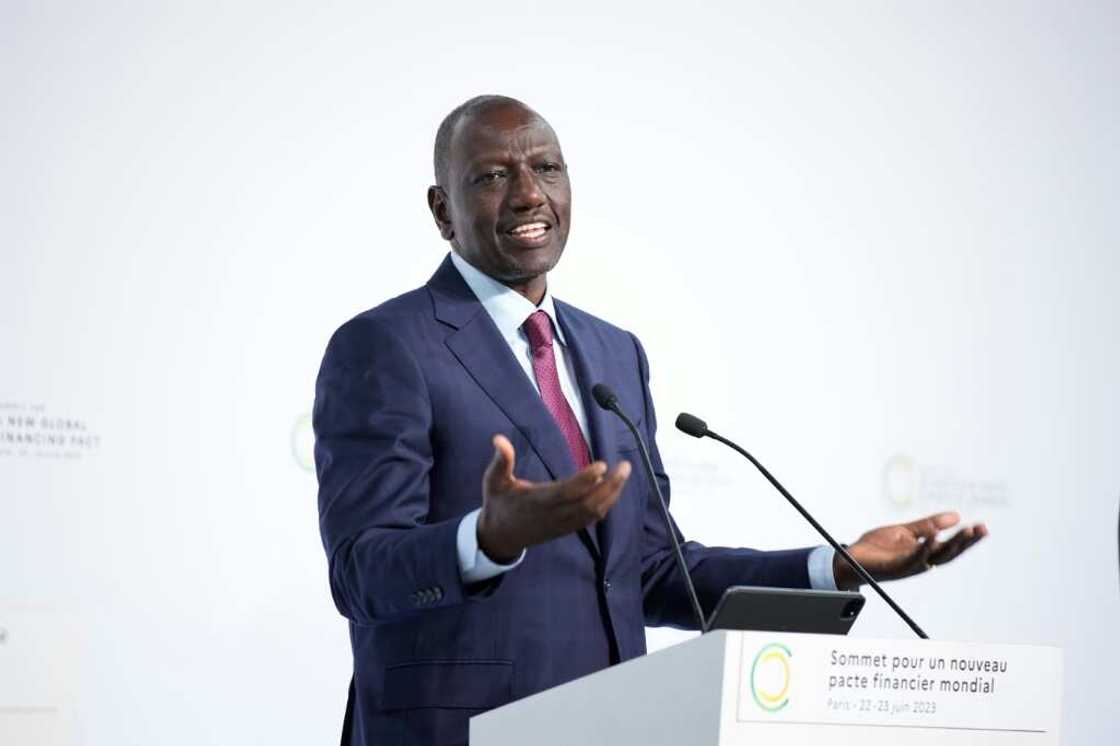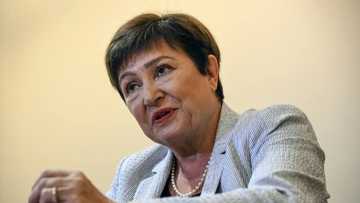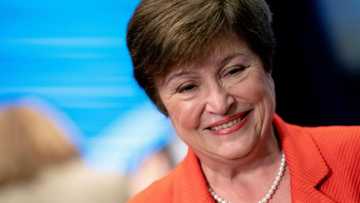Kenya's Ruto to ask China for $1bn loan, debt restructure

Source: AFP
PAY ATTENTION: #StartupSouth Awards 2023 Nominated Legit.ng in the category Best Startup Coverage! Your support matters - click to VOTE for Legit.ng for free!
Kenyan President William Ruto will ask China for a $1-billion loan and a restructured debt payment plan, his deputy said Friday, despite having criticised his predecessor's heavy borrowing from Beijing.
One of East Africa's largest economies, Kenya has accumulated more than 10.1 trillion shillings ($68 billion) in debt, a figure equivalent to 67 percent of its gross domestic product.
The cost of servicing the debt, mainly to China, has ballooned as Kenya's currency has fallen to record lows of around 148 shillings to the dollar, according to treasury data.
Deputy President Rigathi Gachagua said Ruto would travel to China and ask for "more time to repay the debt slowly" and $1 billion to complete road projects delayed by financing shortfalls.
"We are a responsible government, we can't say that we won't pay the debt," Gachagua told a local language radio station.
"He will speak to them requesting at least one billion dollars to be able to pay contractors," he said.
PAY ATTENTION: Сheck out news that is picked exactly for YOU ➡️ find the “Recommended for you” block on the home page and enjoy!
It was not immediately clear when Ruto would make the trip to Beijing, but the president has not visited the East Asian economic giant since winning a closely fought election in August 2022.
China is Kenya's second-largest lender after the World Bank.
Beijing bankrolled Kenya's most expensive infrastructure project since independence 60 years ago, loaning $5 billion to construct a railway line from the port city of Mombasa to Nairobi and Naivasha that opened in 2017.
It also financed the construction of a new port terminal in Mombasa.
The projects, among others, fuelled concerns that Nairobi was taking on more debt than it could afford.
Ruto railed against the borrowing of his predecessor Uhuru Kenyatta on the campaign trail, and pledged to find other ways to spur development to deliver the infrastructure Kenya needs.
China has rejected suggestions its lavish lending was trapping cash-strapped governments in debt dependency.
During a visit to Kenya in July, Beijing's top diplomat Wang Yi praised the two countries' economic partnership and described it as a "win-win".
Kenya is one of the most dynamic economies in East Africa but about a third of the population lives in poverty.
Economic growth slowed last year to 4.8 percent from 7.6 percent in 2021, buffeted by the global fallout from Russia's invasion of Ukraine, and a devastating regional drought that hit the country's vital agriculture sector.
Inflation has remained stubbornly high, at an annual rate of 6.8 percent last month.
In July, global credit ratings agency Fitch Ratings downgraded Kenya's ability to repay international lenders from "stable to negative", citing tax hikes and social unrest.
Source: AFP




